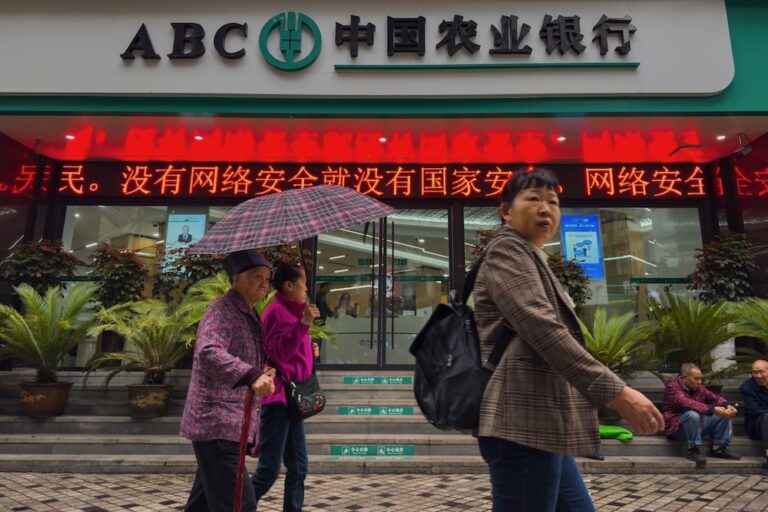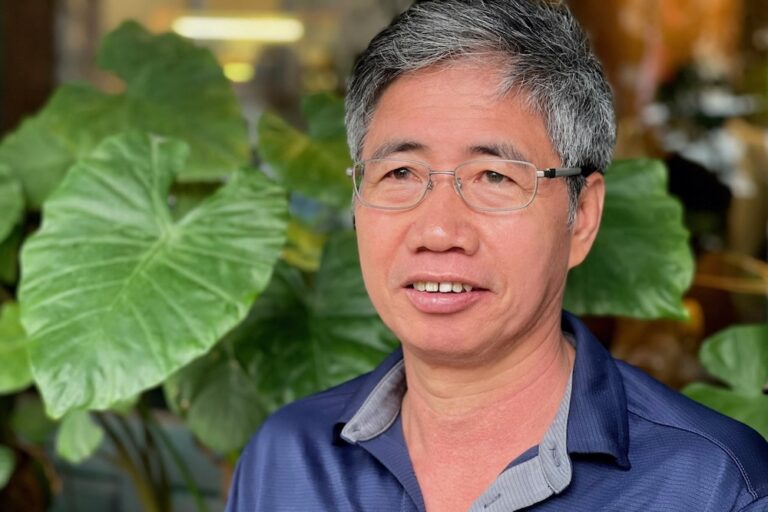(HRW/IFEX) – The following is a 3 December 2001 Human Rights Watch statement: VIETNAM: RIGHTS PROTECTIONS SHOULD BE ON DONORS’ AGENDA (New York, December 3, 2001) – Human Rights Watch today urged Vietnam’s international donors to press for significant progress in human rights and rule of law when they meet in Hanoi on December 7 […]
(HRW/IFEX) – The following is a 3 December 2001 Human Rights Watch statement:
VIETNAM: RIGHTS PROTECTIONS SHOULD BE ON DONORS’ AGENDA
(New York, December 3, 2001) – Human Rights Watch today urged Vietnam’s international donors to press for significant progress in human rights and rule of law when they meet in Hanoi on December 7 and 8. The annual meeting, convened by the World Bank, is attended by forty-five countries and financial institutions making up the Consultative Group on Vietnam.
Donors should also urge the Vietnamese government to release dozens of Buddhist and Catholic religious leaders, political dissidents, and ethnic minority Christians who have been arrested or detained in violation of their human rights, Human Rights Watch said.
“Now that Vietnam’s economy is opening up, this is a good time for donors to press for human rights improvements in Vietnam,” said Sidney Jones, executive director of the Asia Division of Human Rights Watch. “Economic reforms will be more sustainable if they are accompanied by legal reform and basic human rights protections.”
Human Rights Watch urged both bilateral and multilateral donors not only to insist that the Vietnamese government take the essential steps required to strengthen human rights protection but to provide any technical assistance needed. Donors should help Vietnam work on reform of criminal, press, and national security laws, Jones said, not only laws dealing with commercial
matters.
To address the ongoing unrest and isolation of ethnic minorities in the Central Highlands, donors should consider funding a package of development programs for independent non-governmental organizations (NGOs) working in the poverty-stricken provinces of Gia Lai, Dak Lak, Kontum, and Lam Dong. Donors should insist that the projects take a participatory approach to natural resource management and land tenure and include guarantees to ensure access to services by ethnic minority people.
Human Rights Watch also urged donors to closely monitor Vietnam’s progress in meeting its reform commitments at the donors’ mid-year meeting next year.
“Donors should insist on guarantees that there will be no discrimination toward potential aid recipients based on their religion, ethnicity, or political views,” said Jones.
During the discussion of governance issues, the Consultative Group should press Vietnam to take the following steps:
– Uphold its international obligations to respect the rights to freedom of expression, assembly, and association, and to cease arrests, harassment, and arbitrary detention of individuals based on their religious or political views. Respect the right of citizens to hold political opinions varying from that of the state. These rights are enshrined in Vietnam’s 1992 Constitution, and the International Covenant on Social and Political Rights (ICCPR), ratified by Vietnam in 1982.
– Invite the U.N. Working Group on Arbitrary Detention, which visited Vietnam in 1994, to visit again to assess any progress made in implementing its recommendations. The working group should be allowed unrestricted access to the Central Highlands.
– Unconditionally release all persons being held for the peaceful expression of their religious and political views, including dozens of political dissidents, indigenous Montagnards, Buddhists, Catholic, and Protestant Church leaders currently under house arrest or imprisoned in provincial prisons or district and commune police stations. End the practice of detaining and prosecuting persons in secret, and in particular make public the names of all persons held for political and related activities.
– Achieve greater transparency and accountability in the legal and penal systems and work towards the establishment of an independent and impartial judiciary. Give advance notification of trial dates and allow international observers and independent monitors access to trials and to persons in pretrial or administrative detention and in prison.
– Amend or repeal Vietnam’s Criminal Code to bring it into conformity with international standards. Eliminate ambiguities in the Criminal Code’s section on crimes against national security to ensure that these laws cannot be applied against those who have exercised their basic right to freedom of expression.
– Repeal the 1997 Administrative Detention Directive 31/CP, which authorizes detention without trial for up to two years for individuals deemed to have violated national security laws. The government should ensure that all detainees receive a fair trial within a reasonable time as required under international law.
– Ease or eliminate restrictions on the Vietnamese and foreign media, including the Internet and electronic communications, that are in violation of the ICCPR and Vietnam’s Constitution.
– Cease the repression of ethnic minority Protestants in the northern and central highlands, including bans on religious gatherings and other meetings, pressure on Christians to renounce their faith, destruction of churches, and arbitrary police surveillance of religious leaders and persons suspected of involvement in the February 2001 demonstrations in the Central Highlands.
– Address the grievances of the indigenous minorities of the Central Highlands, including land confiscation, repression of religious freedom, lack of educational opportunities, pressure to join family planning programs, and restriction of freedom of assembly, association, and of movement.
– Cease the persecution, unlawful arrest, torture and other mistreatment of Montagnards who have voluntarily or forcibly been returned from Cambodia to Vietnam.
– Remove arbitrary restrictions on access to the Central Highlands by the U.N. High Commissioner for Refugees, journalists, diplomats, and other independent observers.


